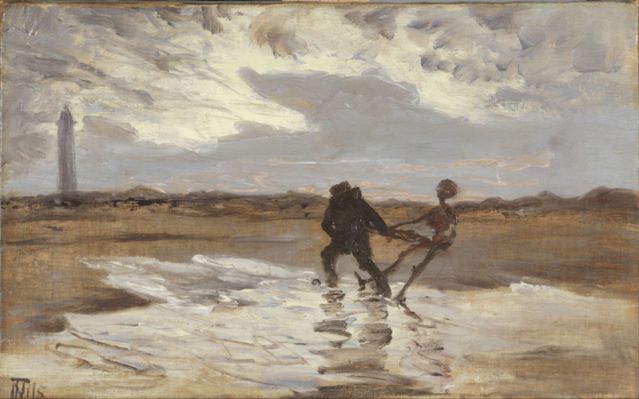Magical Thinking
The Benefits and Consequences of Magical Thinking
Do dead people pinch us while we sleep?
Posted October 17, 2023 Reviewed by Abigail Fagan
Key points
- Superstitions can both help us and hurt us.
- Rituals give us an illusory sense of control.
- Magical thinking and behavior can actually reduce task anxiety.
My students come from all over the world. The beliefs they share in class are often very strange, yet kind of logical when you think about it. As an example, my student from the Bahamas told me that he awoke one day with an unexplained mark on his arm. He believed it must be a supernatural sign from beyond the grave (because he couldn’t remember how it got there). In his culture, an unexplained bruise means that a ghost pinched you while you slept. He explained that they pinch you or pull your toes, because they have unfinished business, or a grudge of some kind. The mark was a message from the land of the dead—meant for the land of the living.
Later that day, he found out that a close relative had died and was buried without his hat. The thing about this connection was that the deceased would never go anywhere in life without his hat. So, someone had to be reminded to put the hat in the grave where it belonged. With that pending need accomplished, the unexplained bruise vanished soon after. The belief that these bruises are messages from the dead actually occurs in several cultures. They are called a Dead Man’s Pinch. In Scandinavian lore they are called Gjengangers (Unagidon, 2016).
This belief seems to fill a gap in community thinking—a mystery is solved and everyone feels at ease again.

Why Do We Still Believe in Superstitions?
Psychologists think that superstitions survive into the present day because they fill a need that rational explanations cannot fill. For instance, sometimes we forget how a bruise got there (like the above example) and deny having put it there ourselves. Simultaneously we may be going through stages of grieving, and can't get over this feeling of survivor guilt. Surely we could have done more before he died? Our minds try to connect the two unconnected events in a way that helps resolve both needs and restores a sense of certainty. With the cognitive dissonance relieved, we may find the illusory connection mentally satisfactory.
Other times we commit ourselves to succeed at a difficult thing, and there isn’t really any guarantee that we will succeed. We don't do well with uncertainty. We like to be in control (Ohtsuka, 2016). But we also like to do things wherein the outcome isn't certain. Gamblers, businessmen, and athletes of various kinds fit into this category. So, after we have done all we logically can, and the odds are still higher than we’d like, we do something inexplicable to "increase" our odds. We carry around a rabbit’s foot, a four-leaf clover, a lucky article of clothing, or a necklace with our favorite saint on it. If all else fails, we may simply whisper a prayer before going on. There's no harm in it. And scientifically speaking, there's a great placebo effect too. Having done something—something that seems to have worked before—we find an inexplicable sense of hyper-optimism that wasn’t there before (Sharot, Korn, & Dolan, 2011).
We find faith in ourselves above chance, a measurable thing we cannot explain.
Do Amulets and Rituals Reduce Anxiety?
Yes. If you believe they will, research tells us that (surprisingly) they often do (Sandou, 2019). The benefit of amulets and rituals is an unexpected measure of inner confidence and calm. Some of the best athletes do them. As an example, Serena Williams (a famous tennis player who most of us agree doesn’t need any supernatural help), performs a certain “ritual” before each match. She bounces the ball exactly five times. Michael Phelps (the famous swimmer) swings his arms a certain number of times (Goldsmith, 2012). If the best people find them helpful, maybe they are?
The Fear of Not Doing These Rituals
Of course, we must acknowledge that such tokens and behaviors add nothing (scientifically) helpful to the skills and training required to be the best in your sport. But take them away, skip them even one time, and strangely the same individuals that usually practice them may do poorly (simply because they usually do them before they win). Psychologists have found that stopping these behaviors (not wearing good luck charms or bouncing the ball a certain number of times) can result in distracting thoughts and even doubts in oneself (Colino, 2016). Stopping them is like an unexpected interruption in a familiar rhythm leading up to a perfect event.
Why? Just as magical thinking about a lucky token can act like a placebo to help you succeed, so too magical thinking may haunt you and hurt you if you try to stop complying with these urges. It is the magnitude of our belief in them that seems to cause this positive or negative placebo effect. As Bruce Hood explains, that baseball glove may or may not have been worn by Willy McCovey. But if we believe it was, that belief will relieve us of some of our own self-doubt when the ball is coming our way (Mangu-Ward, 2009).
Summary
Do dead relatives pinch us while we sleep to remind us to do things we forgot to do? Do four-leaf clovers bring good luck? Does bouncing a ball five times before a match increase the odds of winning? Probably not. But superstitions survive in large part because, at one time, they worked pretty well and were once based on logical associations (for example, not walking under a ladder or observing bizarre food rules before the discovery of bacteria; Kolitz, 2020). On the good side, they explain the unexplained. They reduce anxiety. They grant us a psychological optimism bias that science can actually measure. And on the bad side, when we stop doing them, or try to forget about them, they have a way of surviving anyway by making us feel strangely uneasy (as though our thoughts don't want to go "extinct"). Think about it: Our thoughts keep us company when we are lonely, calm us when we are anxious, and help us get into rhythms that make memory recall and performance less unpredictable. Maybe they have been filling these needs since ancient times.
Superstitions are here to stay—almost as though our own thoughts have been pinching us all along.
References
Colino, S. (2016, October 26). How superstitions are affecting your behavior. U.S. News and World Report. Retrieved from https://health.usnews.com/wellness/mind/articles/2016-10-26/how-superst…
Goldsmith, B. (2012, July 27). Do superstitious minds help or hinder athletes? Reuters. Retrieved from https://www.reuters.com/article/us-oly-superstitions-day0/do-superstiti…
Kolitz, D. (2020, March 30). Which superstitions are based on facts? Gizmodo. Retrieved from https://gizmodo.com/which-superstitions-are-based-on-fact-1841261680
Mangu-Ward. (2009, June 12). Would you wear a serial killer's sweater? Reason. Retrieved from https://reason.com/2009/06/12/would-you-wear-a-serial-killer/
Sandou, A. (2019, September 13). How do superstitions affect our psychology and well-being? Medical News Today. Retrieved from https://www.medicalnewstoday.com/articles/326330
Sharot, T., Korn, C. W., & Dolan, R. J. (2011). How unrealistic optimism is maintained in the face of reality. Nature Neuroscience, 14(11), 1475-1479. doi:10.1038/nn.2949
Unagidon (2016, September 14). Dead man’s pinch. Commonweal. https://www.commonwealmagazine.org/dead-mans-pinch


